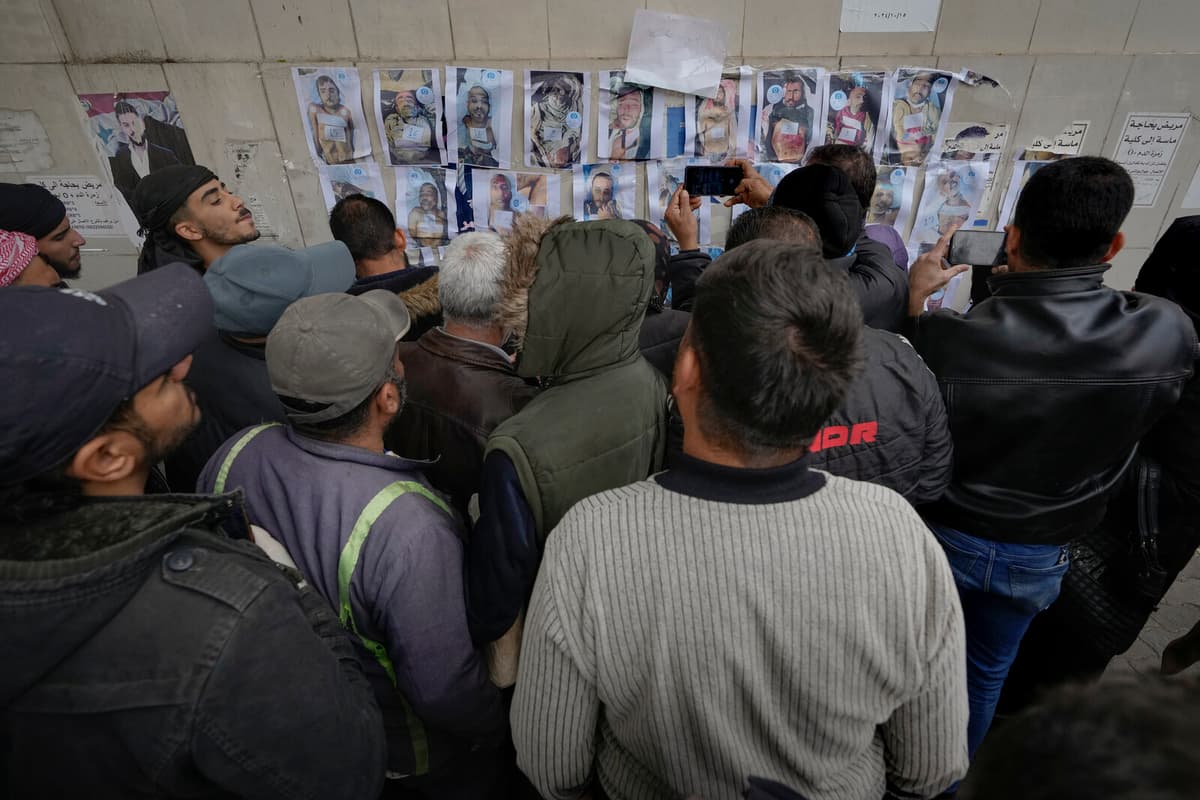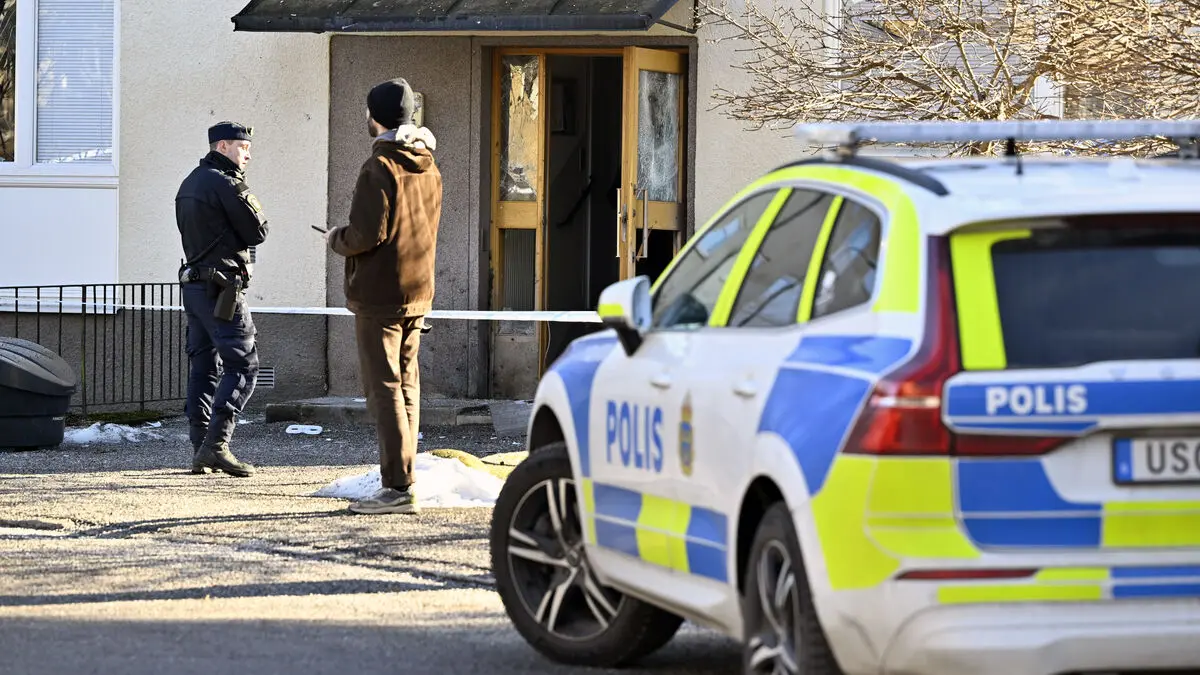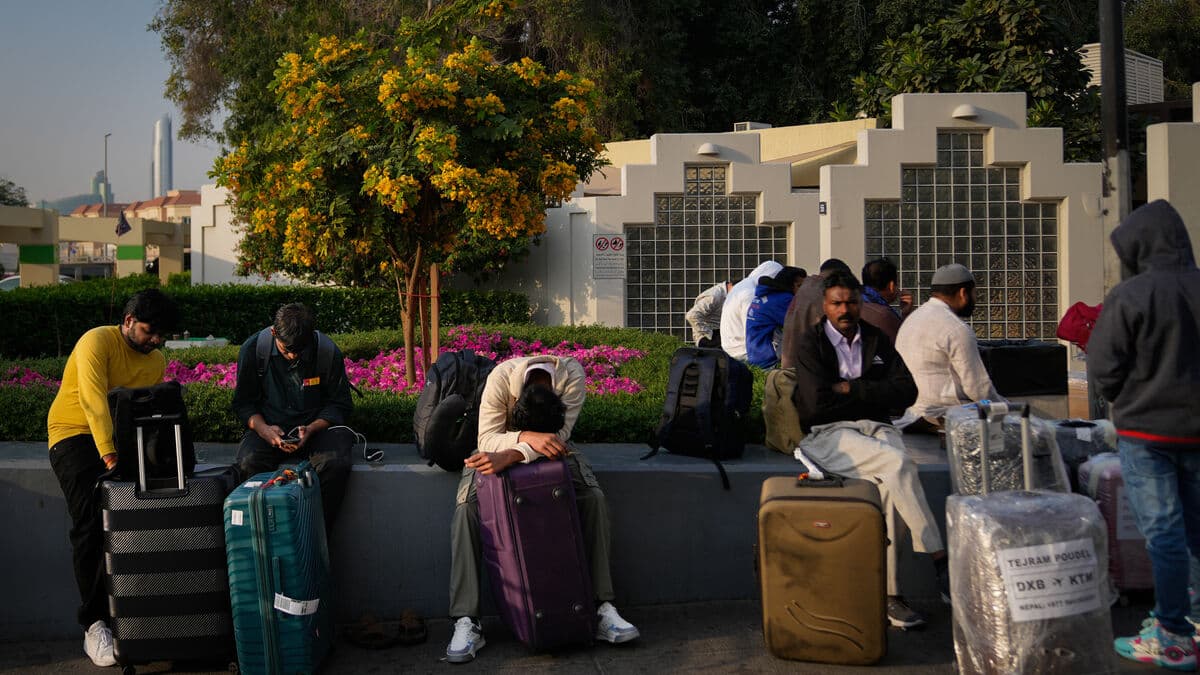The faces bear the marks of starvation. Cheeks and eyes are sunken, shinbones hard and knotted.
How are we even supposed to recognize them?
A woman stretches her neck to see the pictures flashing by on a man's phone in a fine suit and horn-rimmed glasses. On the newly created Telegram account, mortuary workers are posting pictures of the unidentified bodies brought in from the regime's prisons after dictator Bashar al-Assad's fall.
The group outside al-Mujtahid hospital's mortuary is scanning the pictures one by one, writes The New York Times in a report. They are looking for missing husbands, brothers, and sons – but the emaciated faces on the phone bear no resemblance to the photos the relatives have carried with them for so long: pictures of smiling men with life in their eyes, color on their cheeks, flesh on their bones.
During the past decade since the Arab Spring and the outbreak of the civil war, tens of thousands of Syrians have disappeared without a word. They were picked up from the street, from university lectures, from taxis on their way home from work. An estimated 150,000 Syrians are missing due to the war, according to the organization The International Commission on Missing Persons (ICMP) last week. Many of them are believed to have been thrown into the Assad regime's vast prison network, notorious for torture and extrajudicial executions.
Eleven years without contact
For the relatives, hope lives on until their loved ones are found dead. With al-Assad's fall, they are now living in a new, difficult-to-navigate reality.
For Syrian activist Wafa Mustafa, who has neither seen nor heard from her father Ali since he was arrested in 2013, the regime's fall means that the nightmare has taken on a new form. From her home in Berlin, she is combing through name lists circulating online, systematically going through piles of pictures and videos of dead and mutilated prisoners.
It took us years to navigate, to have a family member missing in al-Assad's prisons. It took years to know what we should do, who we should talk to, ask, how we should feel, react, how we should handle the sorrow, the lack of information, the uncertainty, she says in an interview with Sky News.
Now we have to go through a new phase that, to be honest, feels very, very difficult. Especially for us who are still living in exile.
In the days following Bashar al-Assad's flight, hundreds of people gathered outside Mujtahid hospital. Several media outlets report how they desperately pushed past employees and into the mortuary's cold room. When the plastic sheets covering the bodies were pulled away, a scream went through the room, writes The New York Times. Others cried silently.
Barking like dogs
AP's news agency pictures show how photos of the dead have been posted on a wall outside the hospital. The bodies bear clear signs of starvation and torture: shattered faces, protruding ribs, and kneecaps. A shoulder is covered in scars from stab wounds, a face is missing both eyes. A thick red scar runs across a neck, like from a rope. Others are completely unrecognizable, likely dead for a long time.
In front of the wall, rows of people are searching for identifying features that match: a tattoo, a birthmark, other distinguishing characteristics.
The Assad regime's abuses against prisoners – often imprisoned after summary trials, if any trial at all – are well-documented by, among others, the UN and Amnesty. It involves mass hangings, electrocution, sexual abuse, forced confessions, and mock executions.
Law student Muhannad Ghabbash from Aleppo has previously told The New York Times how he was hung upside down by his wrists, beaten bloody, subjected to electrocution, and had weapons pressed into his mouth. And that was just the beginning. At the Syrian air force base al-Mazzeh in Damascus, he and other prisoners were hung naked on a fence and doused with cold water on cold nights. Some evenings, a commander who called himself Hitler forced the prisoners to "entertain" dinner guests by barking like dogs, cats, and monkeys. Those who didn't bark correctly were beaten.
Others, like Omar Alshogre, who has lived in exile in Sweden since 2015, have told how they were forced to clear away and mark their dead fellow prisoners with numbers on their foreheads. 37, 38, 39 – often up to 40 a day. Sometimes the bodies fell apart when he tried to lift them. He carried his cousin like a baby in his arms the 35 meters to and from the toilet, every day, until he realized his cousin had died in his arms. "3,532", he wrote on his cousin's forehead.
Well-known regime critic found
When Alshogre was released from the notorious Damascus prison Saydnaya, known as al-Assad's slaughterhouse, after a mock execution, he weighed 34 kilos.
They forced my cousin, whom I loved so much, to torture me, and me to torture him. Otherwise, we would both be executed, he recently told BBC.
After the regime's fall, torture equipment, including ropes and iron presses where prisoners were allegedly crushed to death, was found in the military prison Saydnaya. Additionally, more than 30 bodies with visible signs of torture were found.
They are disfigured, cut up. We can't see who's who, said local politician Ahmad Shouman to the British The Telegraph at al-Mujtahid hospital's mortuary.
Beside Shouman, someone opened a body bag.
Look, his right hand is missing, shouted a man.
What did all these people do to deserve to die?, asked another.
One of the bodies that could be identified was that of the well-known Syrian regime critic Mazen al-Hamada, who from his previous exile in the Netherlands had told of the torture: of how he was hung in chains from the ceiling for hours, how guards jumped on him until his ribs broke. How he was burned with cigarettes, subjected to electrocution, raped with an iron rod, and had his genitals crushed.
al-Hamada chose to return to Syria; reportedly after promises of amnesty. He was arrested immediately upon his return.






